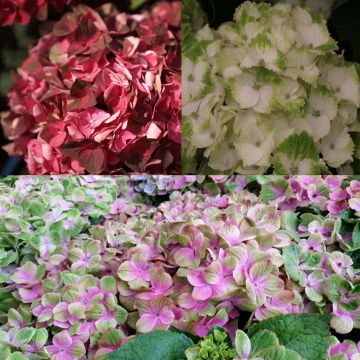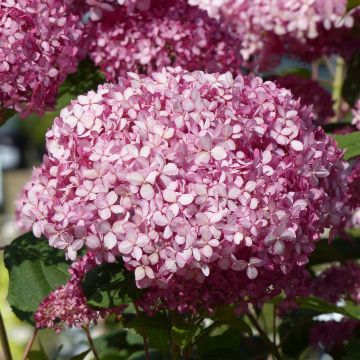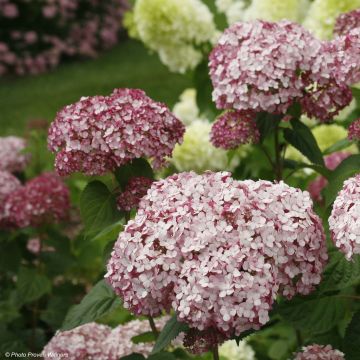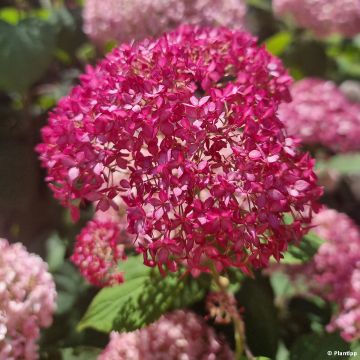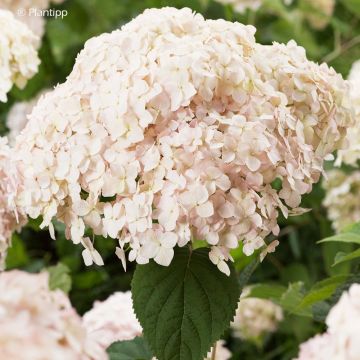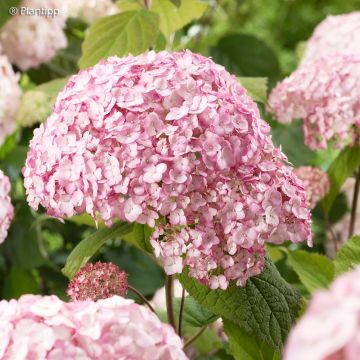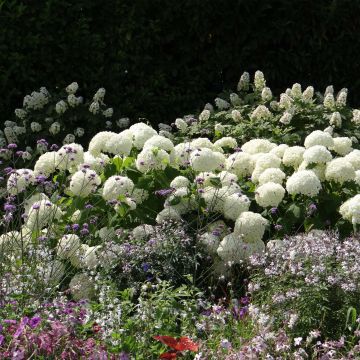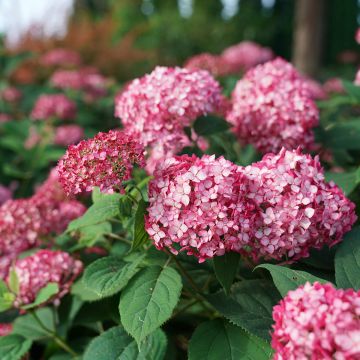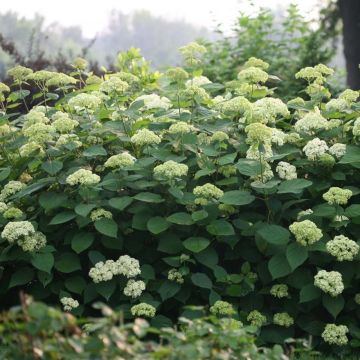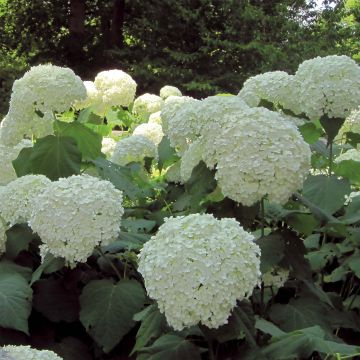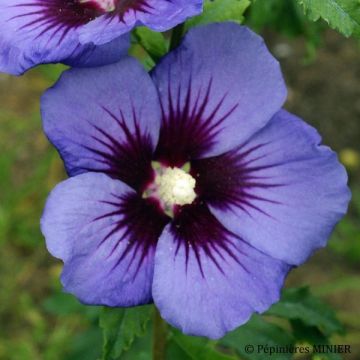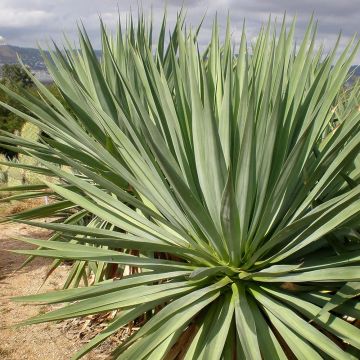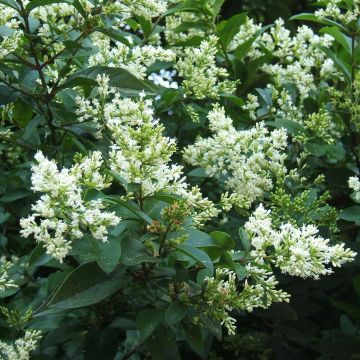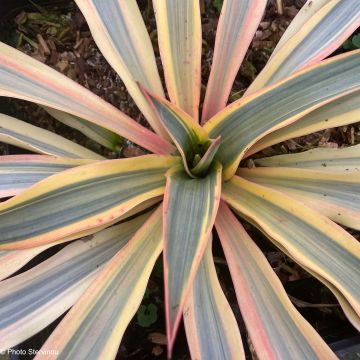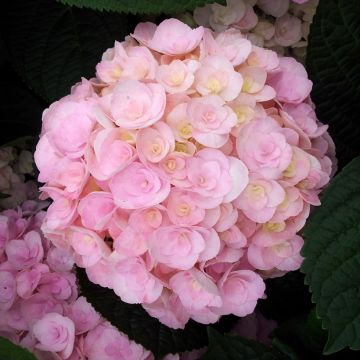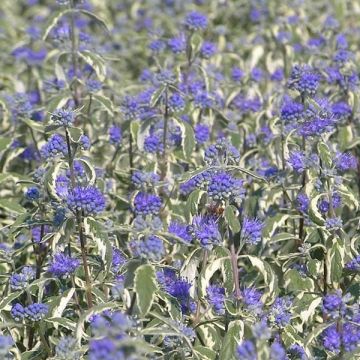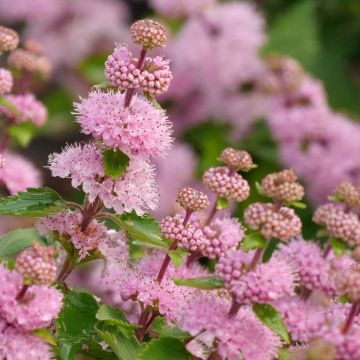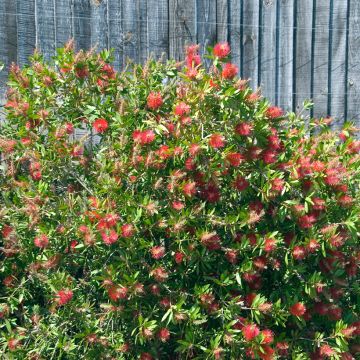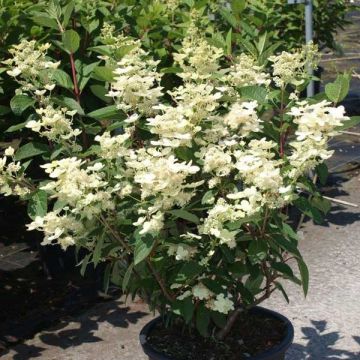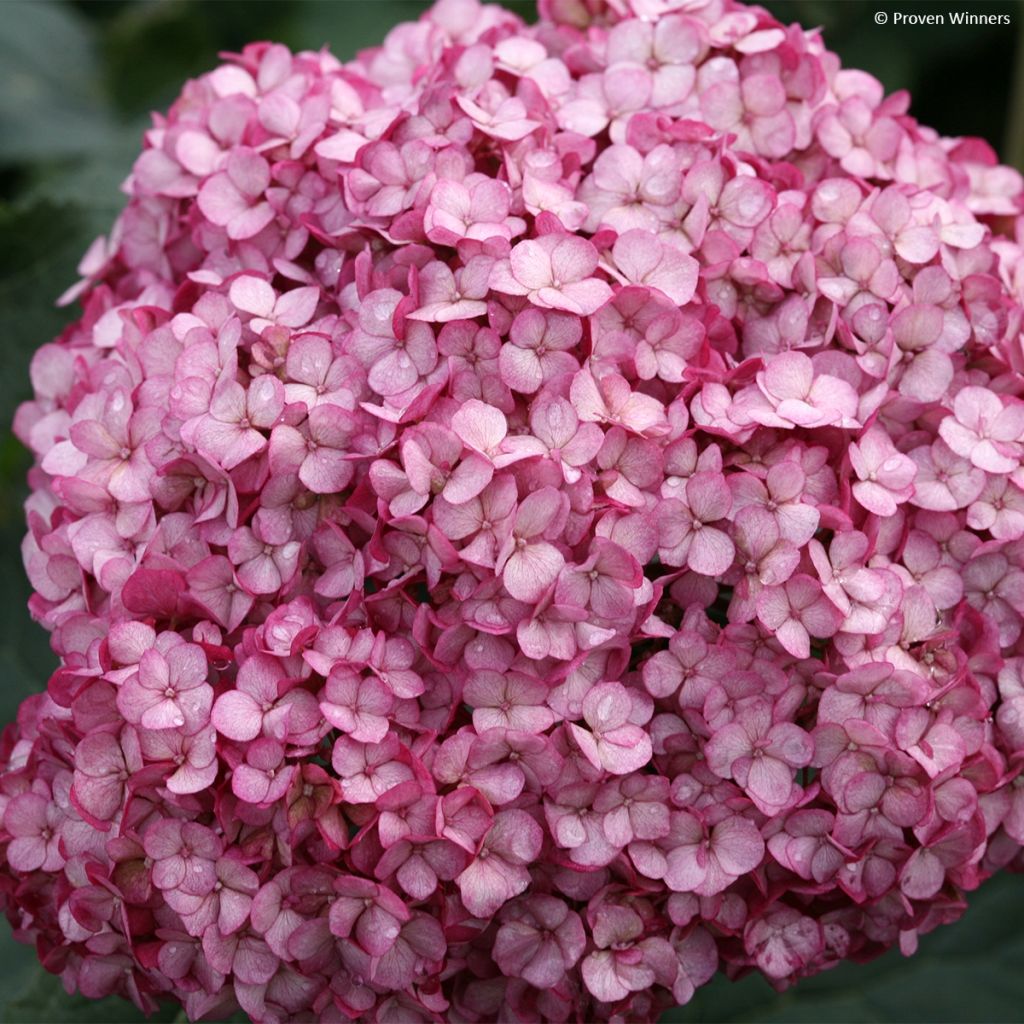

Hortensia arborescens BellaRagazza Mauvette
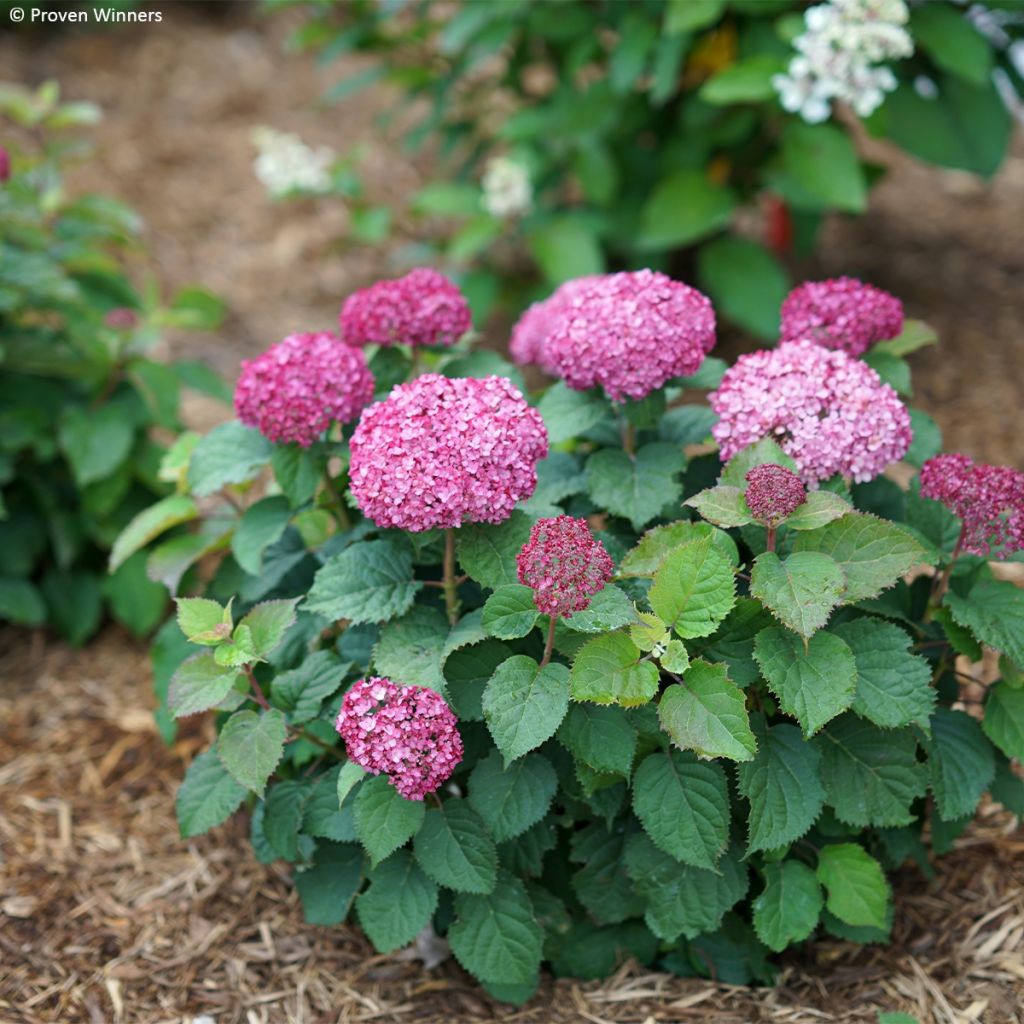

Hortensia arborescens BellaRagazza Mauvette
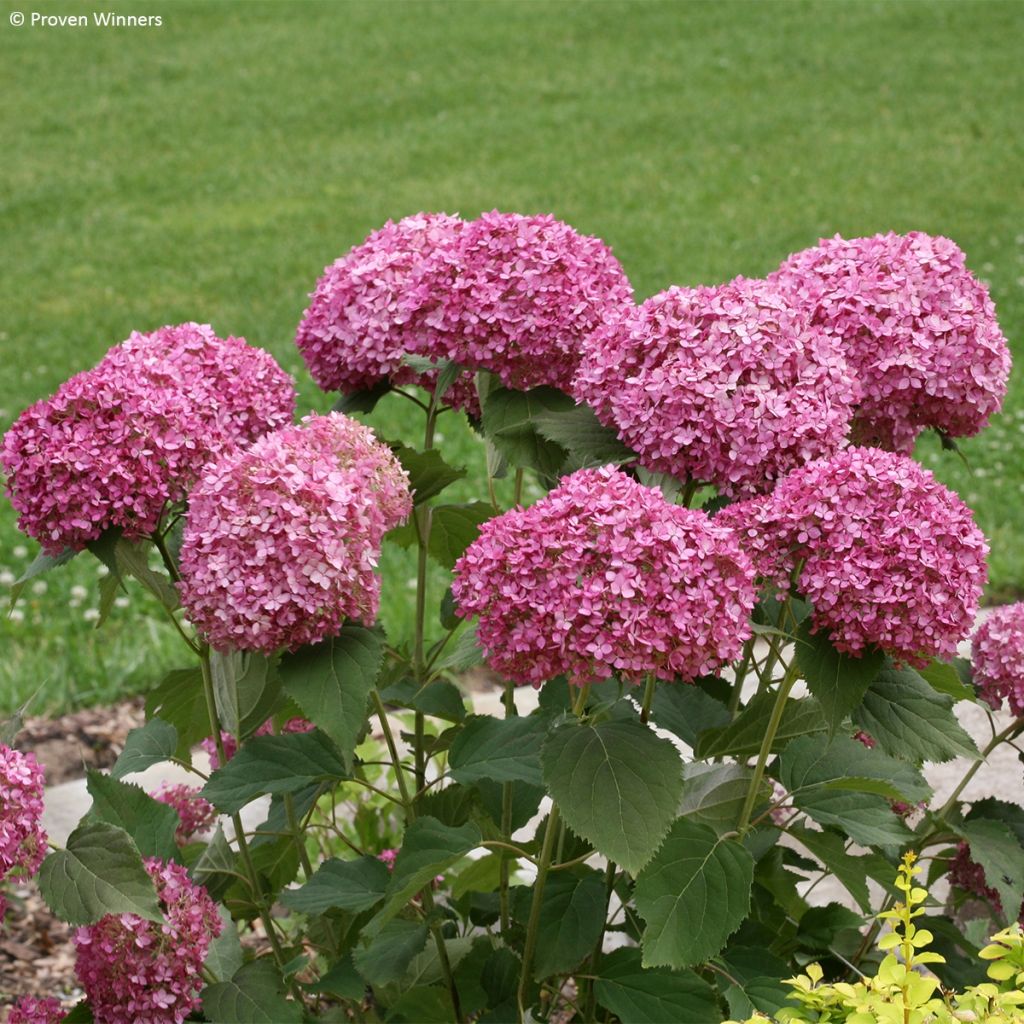

Hortensia arborescens BellaRagazza Mauvette
Hydrangea arborescens BellaRagazza Mauvette
Hydrangea arborescens BellaRagazza® Mauvette (‘NCHA7’)
Smooth Hydrangea, Wild Hydrangea, Sevenbark
Why not try an alternative variety in stock?
View all →This plant carries a 24 months recovery warranty
More information
We guarantee the quality of our plants for a full growing cycle, and will replace at our expense any plant that fails to recover under normal climatic and planting conditions.
From €5.90 for pickup delivery and €6.90 for home delivery
Express home delivery from €8.90.

Does this plant fit my garden?
Set up your Plantfit profile →
Description
Hydrangea arborescens BellaRagazza Mauvette brings its wonderful pink-purple colour to this series of dwarf 'Annabelle' type hydrangea perfectly suited to the ornamentation of terraces, balconies, and small gardens. Endowed with the accommodating character of the large 'Annabelle' that enchants so many gardeners, this small bush produces large frothy flowers all summer long that remain decorative for a long time. Its short and sturdy stems easily support the weight of the flowers, even when soaked with rain. A superb little hydrangea, as romantic as it is easy to grow!
Hydrangea arborescens, also called Virginia Hydrangea, belongs to the large Hydrangeaceae family. This botanical species native to the Southeastern USA is less demanding in terms of shade and soil than its Asian counterparts, and therefore very easy to grow in any moist and flexible soil. It has given rise to numerous varieties through hybridisation that prove to be excellent garden bushes.
BellaRagazza Mauvette is a perfectly hardy plant that faithfully reflowers even after cold winters. It blooms on the current year's shoots. It can be be planted in cold regions, as it renews its floral buds all summer and does not fear spring frosts. It develops solid and ramified stems, forming a bush reaching 60 to 90cm (24 to 35in) in all directions, making it ideal for cultivation in tubs or pots. The flowering begins at the end of June and renews until September. It takes the form of large globular inflorescences called corymbs, which can measure up to 18cm (7in) in diameter. Each one is made up of a multitude of small flowers called florets. Each floret has 3 to 4 pink-purple sepals. The foliage is made up of beautiful single leaves, which are wide and ovate, dentate on the edge, and 10 to 15cm (4 to 6in) long. The dark green leaves are deciduous, falling in autumn. Hydrangeas can live for more than 50 years.
If you like small, flowering, robust and easy to grow hydrangeas in any good garden soil, BellaRagazza Mauvette is the one for you. If your decor is rather contemporary, or if you have a small city garden, this small-sized bush will provide a romantic and natural touch. This plant enlivens slightly shaded areas, on a terrace or in the garden, placed alone, in a flower bed, or even in a group of 3 subjects. Plant a small border of boxwood or Lonicera nitida 'Elegant' to form a setting for its large flowers. It can also be surrounded by grasses, hardy fuchsias, daffodils, and pansies to prolong the flowering and complete the range of colours. Finally, cut its flowers to compose beautiful bouquets!
Report an error about the product description
Hydrangea arborescens BellaRagazza Mauvette in pictures
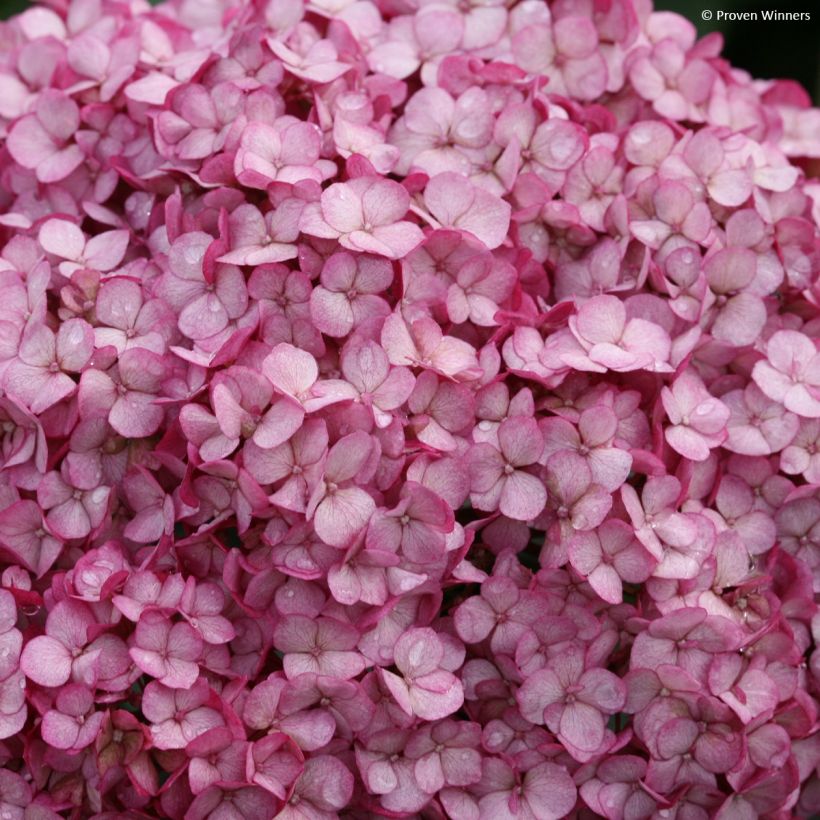

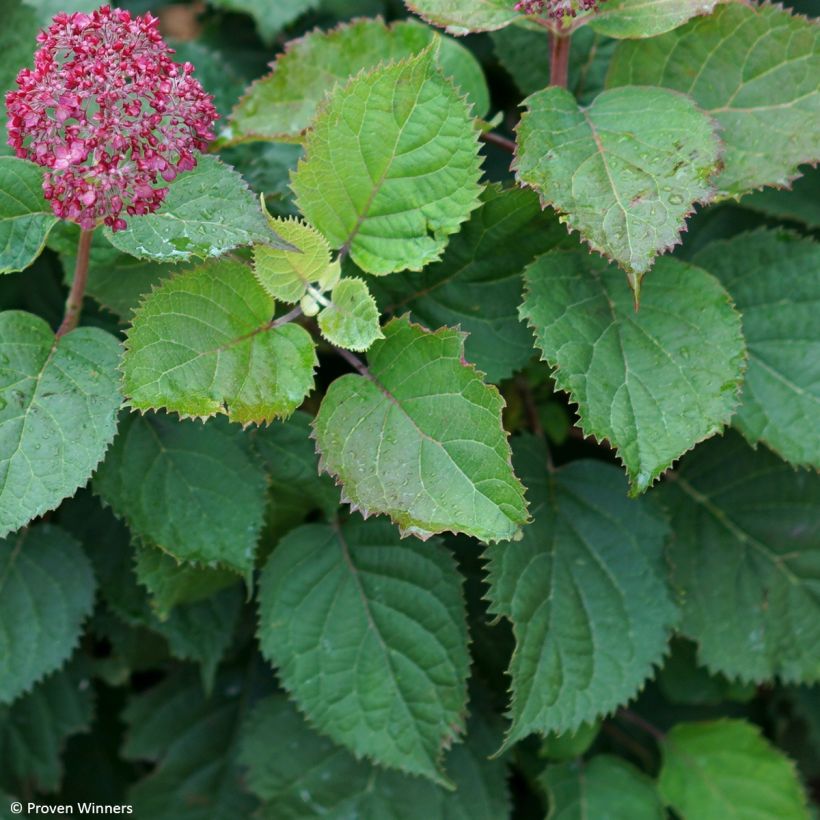

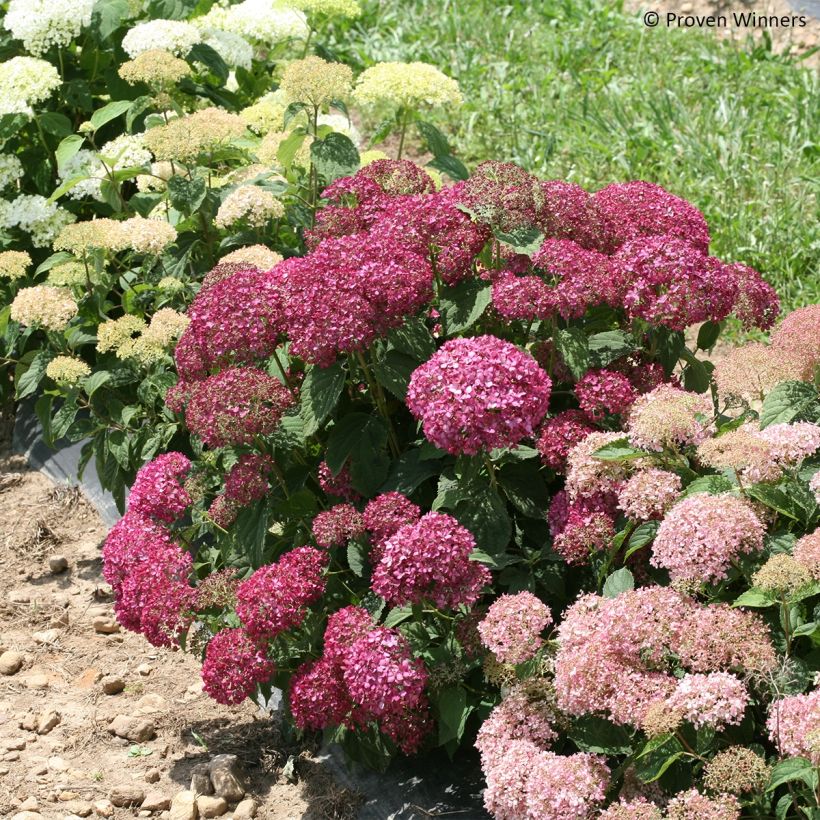

Plant habit
Flowering
Foliage
Botanical data
Hydrangea
arborescens
BellaRagazza® Mauvette (‘NCHA7’)
Hydrangeaceae
Smooth Hydrangea, Wild Hydrangea, Sevenbark
Cultivar or hybrid
Other Hydrangea arborescens
Planting and care
Plant in the sun or light shade, in deep, loose, moist, slightly acidic, enriched ordinary garden soil, without excess lime. Ensure the soil is deeply worked. A good base fertiliser (horn or dehydrated blood) will promote the establishment of your young plant and nourish it without risk of burning. The plant is perpetual, so you can cut the faded flowers regularly in summer. At the end of summer, leave the large dry umbels on the plant as they will protect the terminal shoots in winter. Remove all the dry flowers at the end of February or at the first sign of warmer weather.
Planting period
Intended location
Care
This item has not been reviewed yet - be the first to leave a review about it.
Summer-flowering shrubs
Haven't found what you were looking for?
Hardiness is the lowest winter temperature a plant can endure without suffering serious damage or even dying. However, hardiness is affected by location (a sheltered area, such as a patio), protection (winter cover) and soil type (hardiness is improved by well-drained soil).

Photo Sharing Terms & Conditions
In order to encourage gardeners to interact and share their experiences, Promesse de fleurs offers various media enabling content to be uploaded onto its Site - in particular via the ‘Photo sharing’ module.
The User agrees to refrain from:
- Posting any content that is illegal, prejudicial, insulting, racist, inciteful to hatred, revisionist, contrary to public decency, that infringes on privacy or on the privacy rights of third parties, in particular the publicity rights of persons and goods, intellectual property rights, or the right to privacy.
- Submitting content on behalf of a third party;
- Impersonate the identity of a third party and/or publish any personal information about a third party;
In general, the User undertakes to refrain from any unethical behaviour.
All Content (in particular text, comments, files, images, photos, videos, creative works, etc.), which may be subject to property or intellectual property rights, image or other private rights, shall remain the property of the User, subject to the limited rights granted by the terms of the licence granted by Promesse de fleurs as stated below. Users are at liberty to publish or not to publish such Content on the Site, notably via the ‘Photo Sharing’ facility, and accept that this Content shall be made public and freely accessible, notably on the Internet.
Users further acknowledge, undertake to have ,and guarantee that they hold all necessary rights and permissions to publish such material on the Site, in particular with regard to the legislation in force pertaining to any privacy, property, intellectual property, image, or contractual rights, or rights of any other nature. By publishing such Content on the Site, Users acknowledge accepting full liability as publishers of the Content within the meaning of the law, and grant Promesse de fleurs, free of charge, an inclusive, worldwide licence for the said Content for the entire duration of its publication, including all reproduction, representation, up/downloading, displaying, performing, transmission, and storage rights.
Users also grant permission for their name to be linked to the Content and accept that this link may not always be made available.
By engaging in posting material, Users consent to their Content becoming automatically accessible on the Internet, in particular on other sites and/or blogs and/or web pages of the Promesse de fleurs site, including in particular social pages and the Promesse de fleurs catalogue.
Users may secure the removal of entrusted content free of charge by issuing a simple request via our contact form.
The flowering period indicated on our website applies to countries and regions located in USDA zone 8 (France, the United Kingdom, Ireland, the Netherlands, etc.)
It will vary according to where you live:
- In zones 9 to 10 (Italy, Spain, Greece, etc.), flowering will occur about 2 to 4 weeks earlier.
- In zones 6 to 7 (Germany, Poland, Slovenia, and lower mountainous regions), flowering will be delayed by 2 to 3 weeks.
- In zone 5 (Central Europe, Scandinavia), blooming will be delayed by 3 to 5 weeks.
In temperate climates, pruning of spring-flowering shrubs (forsythia, spireas, etc.) should be done just after flowering.
Pruning of summer-flowering shrubs (Indian Lilac, Perovskia, etc.) can be done in winter or spring.
In cold regions as well as with frost-sensitive plants, avoid pruning too early when severe frosts may still occur.
The planting period indicated on our website applies to countries and regions located in USDA zone 8 (France, United Kingdom, Ireland, Netherlands).
It will vary according to where you live:
- In Mediterranean zones (Marseille, Madrid, Milan, etc.), autumn and winter are the best planting periods.
- In continental zones (Strasbourg, Munich, Vienna, etc.), delay planting by 2 to 3 weeks in spring and bring it forward by 2 to 4 weeks in autumn.
- In mountainous regions (the Alps, Pyrenees, Carpathians, etc.), it is best to plant in late spring (May-June) or late summer (August-September).
The harvesting period indicated on our website applies to countries and regions in USDA zone 8 (France, England, Ireland, the Netherlands).
In colder areas (Scandinavia, Poland, Austria...) fruit and vegetable harvests are likely to be delayed by 3-4 weeks.
In warmer areas (Italy, Spain, Greece, etc.), harvesting will probably take place earlier, depending on weather conditions.
The sowing periods indicated on our website apply to countries and regions within USDA Zone 8 (France, UK, Ireland, Netherlands).
In colder areas (Scandinavia, Poland, Austria...), delay any outdoor sowing by 3-4 weeks, or sow under glass.
In warmer climes (Italy, Spain, Greece, etc.), bring outdoor sowing forward by a few weeks.

































